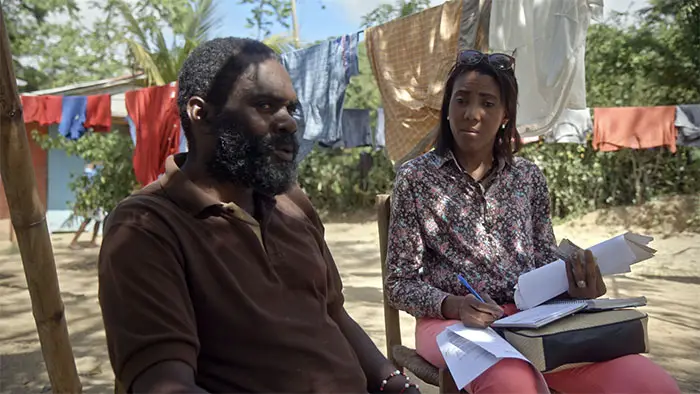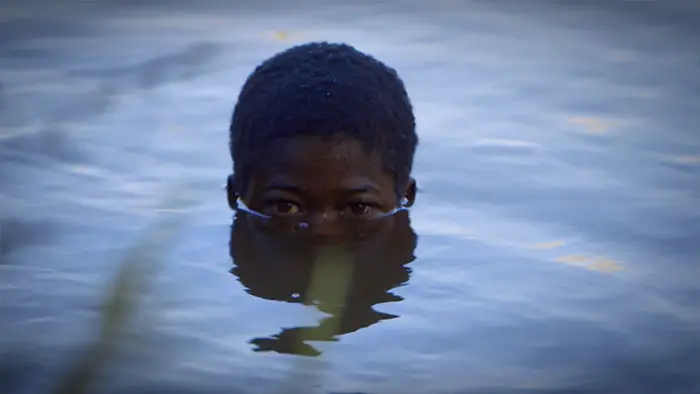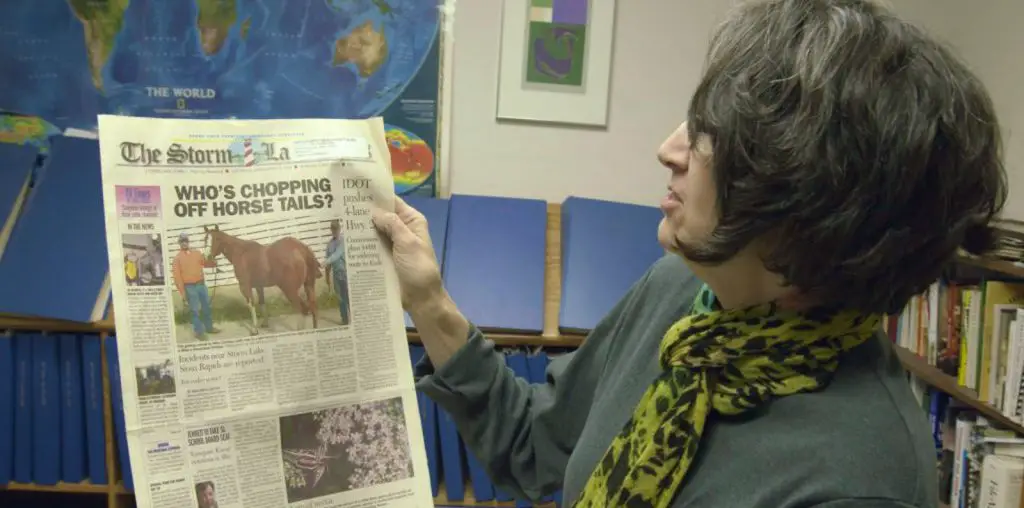
TRIBECA FILM FESTIVAL 2021 REVIEW! On the shortlist of the things that divide us as a nation is immigration. Like any issue, it has two sides that are so deeply entrenched that it is now a political issue for votes instead of a humanitarian one. But clearly, this debate is not uniquely American, as presented in Michèle Stephenson’s documentary Stateless.
Her film takes on the immigration and citizenship battle being waged today in the Dominican Republic. Haiti and the Dominican Republic share the island of Hispaniola, and their relationship has been rocky from the start. In 1937, tens of thousands of Haitians and Dominicans of Haitian descent were murdered by the Dominican army to “whiten” the population. In 2018, the Dominican Republic’s Supreme Court stripped the citizenship of anyone with Haitian parents, going back to 1929. The ruling left over 200,000 people stateless with no country to claim as home.
Stateless follows the efforts of attorney Rosa Iris as she advocates for the restored rights of the “stateless” but also attempts a grassroots campaign to remove President Danilo Medina from office during the upcoming election. We’re shown political speeches from Medina claiming that the so-called “stateless” problem doesn’t exist, but Stephenson’s documentary proves he’s lying and pandering to his base.
However, the heart of the film is how the citizenship issue is steeped deeply in the country’s accepted racism over the last hundred years. Favor is given to the Hispanic citizens of the Dominican Republic versus the discrimination of the Haitians of African descent or, more simply, the dark-skinned ones. “Go back to where you came from,” is the rallying cry. If you want to see blatant state-sanctioned racism, it’s just a few hundred miles from our southern coast.

“…the Dominican Republic’s Supreme Court stripped the citizenship of anyone with Haitian parents…”
Stateless also follows Rosa’s client, Juan Teofilo, who represents one of the thousands who lost their citizenship. In one scene, he is equipped with a hidden camera as he attempts to restore his citizenship during a meeting at the state department. It appears his papers were sloppily filled out at birth and today deemed invalid. Now the only way to prove his citizenship is to show somehow his mother is, in fact, his mother.
In contrast, the film profiles the work of Gladys Feliz, who represents the nationalist movement. She takes us to the border as Haitians move freely across from one to the other. She discusses with friends how “those Haitians” take jobs, steal, rob, and rape.
As a film, director Stephenson captures amazing on-the-ground footage of her subjects and a country ravaged by racism. She then intercuts it with news footage in place of interviews with politicians. Throughout Stateless, Stephenson presents a dramatized narrative of a young woman fleeing the genocidal violence of 1937. The result is a compelling and beautifully shot story.
Stateless is primarily about Rosa Iris—a profile in courage as she stands up for the discriminated, while the target of protest and violence for her work. It’s also a disheartening tale of activism as well. Why? Watch the movie.
Stateless screened at the 2021 Tribeca Film Festival.

"…a compelling and beautifully shot story."



[…] An engaging and wonderfully shot story.”– Movie Hazard” A truly rather amazing work that is mind-blowing for both its story along with its abundant […]
[…] Film Threat […]
Awesome Movie ….Sad to see such Racism